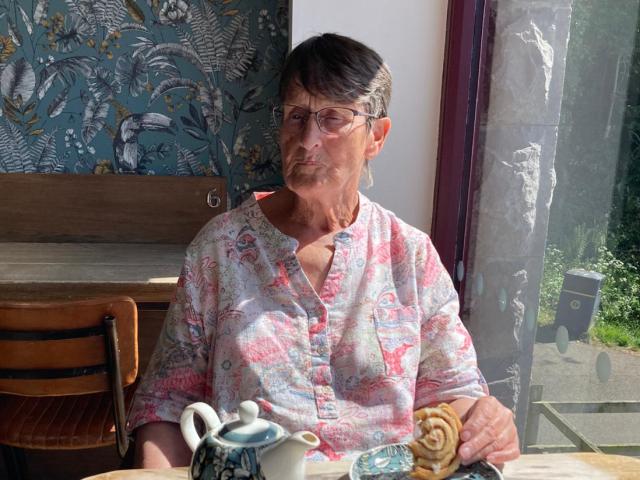
Carer’s education programme helps to “bridge the gap” of life after stroke
9 June
Carers of people who have experienced a stroke were invited to a carers education programme to increase their understanding and confidence in looking after their loved one – and themselves.
The programme’s impact is being evaluated as part of a research study supported by Health and Care Research Wales.
To mark Carers Week (9-15 June 2025), Craig Roberts, 75, from Ruthin, talks about the difference the support sessions made to his and his wife Jean’s lives after she had a stroke in September 2024.
The sessions ran for six weeks at the Stroke Rehabilitation Centre at Llandudno General Hospital. It was co-designed by the stroke team at Betsi Cadwaladr University Health Board, led by stroke consultant therapist and Health and Care Research Wales Faculty member Dr Sushmita Mohapatra, in collaboration with Stroke Association Wales. Dr Mohapatra said,
When someone has a stroke, their life can change entirely. It’s a huge learning curve and can be very emotional for them and for their loved ones. People can be very worried about the unknown, which is why I am passionate about carers’ education.
“Every stroke is different, which makes it difficult to provide an individualised support programme. We wanted to bring together multidisciplinary support to cover all aspects of care, as well as vital emotional and peer support, to ultimately improve quality of life of both the stroke survivor and carer themselves.”
Sessions were held during visiting hours and covered a wide range of topics, from how to help with physical mobility, to diet and lifestyle advice, transferring of care from hospital to home, and how to support stroke survivors and themselves emotionally.
Dr Mohapatra continued, “We know that one of the biggest challenges for carers is time, so we wanted to make sure the sessions were as accessible and informative as possible. Sessions were led by different teams, including physiotherapists, speech and language therapists, nurses, dieticians and psychologists.. Representatives from Stroke Association Wales also led sessions providing reassurance and giving carers the opportunity to meet and speak to others in the same situation.”
So far 48 carers have benefitted from the course, including Craig, who said it was invaluable to help him and Jean, 76, “bridge the gap and move forward”.
Craig said, “Before the stroke Jean was in excellent health, so it came as a real shock. I woke up to the noise of her tapping the radiator for help. She had had a stroke sometime in the early hours of the morning and fallen out of bed. She was conscious but couldn’t speak and her eyelids were flickering. It was scary, particularly as we didn’t know exactly what time it had happened.”
Jean spent three weeks at Ysbyty Glan Clwyd, Denbighshire, before being transferred to the Stroke Rehabilitation Unit, where Dr Mohapatra approached Craig about taking part in the carer’s programme. Craig continued,
The sessions were fantastic. Everything was so helpful and relevant, and the staff were totally committed and understood what we needed. It was helpful to meet other people in a similar position to us and learn what to expect and how to move forward. An hour each week didn’t seem long enough.
“Recovering from a stroke is a team effort, with the medical and nursing side and patients and next of kin all working together. My wife is determined to give her best, and I’ll get involved in anything and everything to help with her recovery. I was very happy to be involved in the research and give something back to the medical team for their professionalism and commitment.”
Jean was discharged from the unit after eight weeks and has continued to make a positive recovery, something Craig credits to what he learnt during the course.
“Once Jean was discharged it was time for us to start moving on with life, making the most of the challenges with the assistance the team at the unit had given us. Within a couple of days of being at home, everything went up a step or two. Being in a familiar environment really helped, but I can’t thank the various staff enough or underestimate how important it was to have that support.”
The programme is currently being evaluated, and Dr Mohapatra hopes it will be extended to welcome more carers and to deliver community-led sessions in the future.